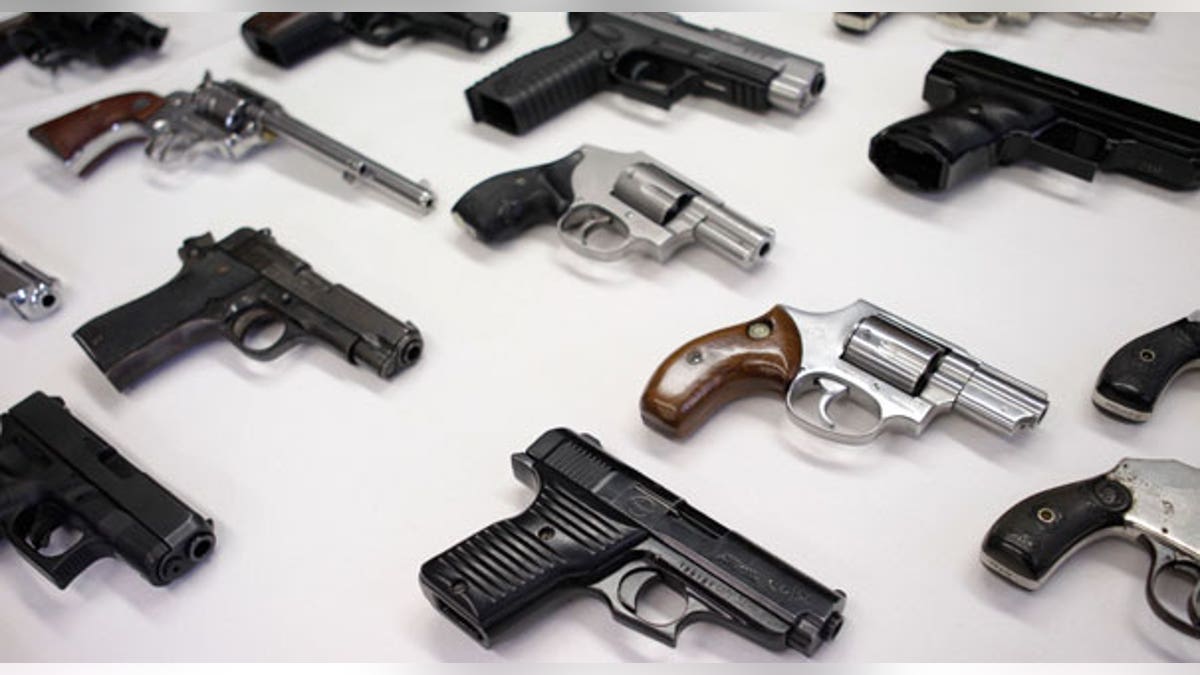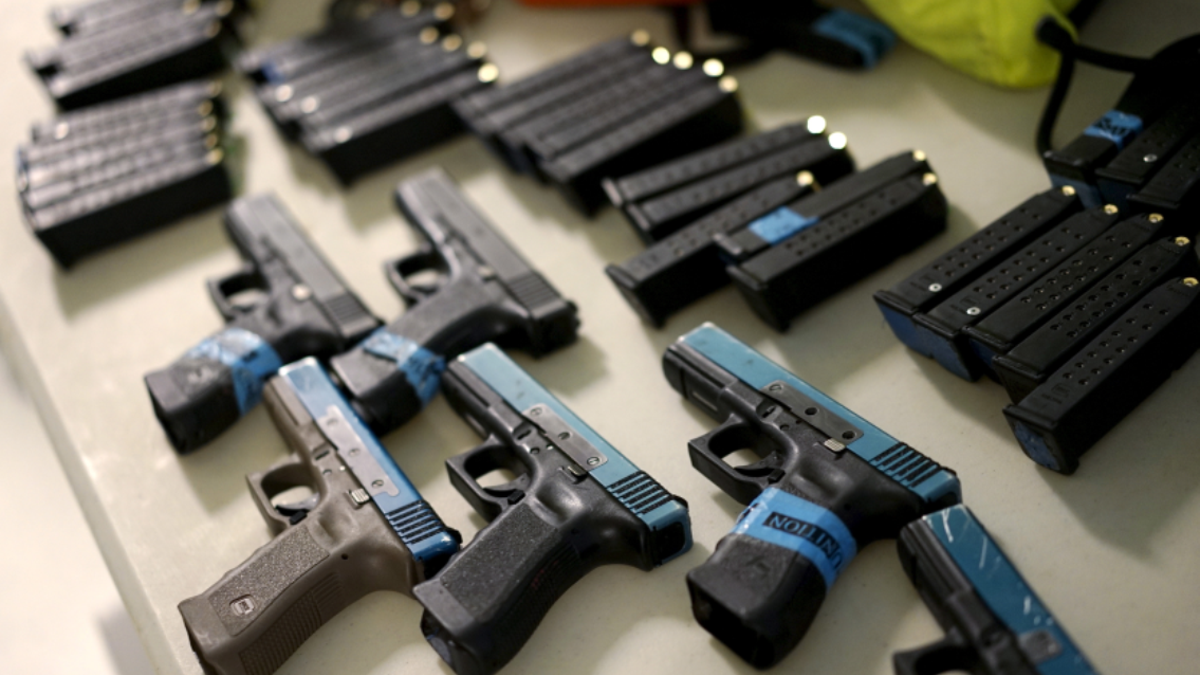
AP Photo
Don Hall and his girlfriend were sitting in their living room earlier this year when they noticed police lights flashing outside the couple’s upstate New York home.
When the 70-year-old Army veteran greeted Oneida County sheriff’s deputies he was given a document saying that Hall had to hand over his six guns – four long guns and two pistols -- to law enforcement because he had been deemed “mentally defective.”
Shocked, Hall told the police he had no history of mental issues. The deputies asserted that he must have triggered the order under New York state’s Secure Ammunition and Firearms Enforcement Act, and then the officers left with his guns.
“I’ve never been in trouble in my whole life and never done anything" to warrant this.
The so-called SAFE Act, which was implemented in 2013 in the wake of the Sandy Hook Elementary School massacre in Connecticut, includes a provision that allows heath care providers to report patients that they think may be a risk to themselves or others.
In Hall’s case, however, the sheriff’s deputies were wrong. He hadn’t triggered an order under the SAFE Act.
New York’s Office of Mental Health found that Hall’s case originated with a report to the system set up under the federal government’s Brady Handgun Violence Prevention Act – a law that includes a provision making it mandatory that a hospital or other medical facility report anyone who is involuntarily committed or has been ruled mentally defective by a court or similar legal body.
Hall hired a lawyer and – after receiving a number of affidavits proving he hadn’t been treated for mental illness – convinced a judge that a hospital worker must have confused him with someone else and got his guns back.
Hall’s plight is just one of a number of cases across the U.S. where provisions in federal and state laws meant to keep guns out of the hands of mentally ill people and criminals have actually led to mistaken seizures of weapons by law enforcement.
In April, a California family has won a fight forcing the return of 500 firearms seized by the state's Department of Justice two years ago.
The weapons were confiscated on a report that Albert Sheakalee was barred from owning guns because he was in the state's Armed Prohibited Persons database.
His attorney, Mark Coleman, said Sheakalee did not know that he was in the database. Sheakalee maintained the Justice Department broke a promise to keep the raid confidential until a court hearing determined whether he was mentally fit to own guns.
The California case was followed by one in June where a New York court sided with a woman whose guns were picked up by law enforcement five years earlier.
A panel of judges in the U.S. 2nd Circuit Court of Appeals upheld a lower court’s decision that there is no apparent reason why Christine Panzella shouldn’t receive a hearing to get her firearms returned by Nassau County Sheriff’s Department. Panzella had her guns seized in 2012 by the agency, while she was the subject of a protective order filed by her ex-husband.
“Such a hearing would provide Panzella with a timely and inexpensive forum to challenge the County’s retention of her long arms,” wrote Circuit Judge Guido Calabresi.

And it’s not just modern weapons that are being seized either.
In 2010, Michael Roberts surrendered 21 firearms that were family heirlooms to the Torrance Police Department.
The court order was the result of a dispute Roberts had with a member of the doctor’s staff and, after Roberts pleaded no contest, the matter was resolved. Yet, even though he filed the proper Law Enforcement Gun Release paperwork on four separate occasions, obtained clearance from the California Department of Justice and obtained two court orders for the return of his guns, police refused to hand them over.
With the backing of the National Rifle Association and California Rifle and Pistol Association, Roberts filed a federal lawsuit in May 2014, over the $15,500 worth of firearms. In the end he got the money, but not the guns. The police had had them destroyed.
“NRA and CRPA constantly get calls from law abiding people having problems getting their guns back,” said Chuck Michel of Long Beach-based Michel & Associates, which represented Roberts in the case. “The state Department of Justice wrongly tells police not to give guns back unless the person can document ownership of the gun and it is registered in the state DOJ’s database. But the law doesn’t require this.”
Malia Zimmerman and The Associated Press contributed to this report.

